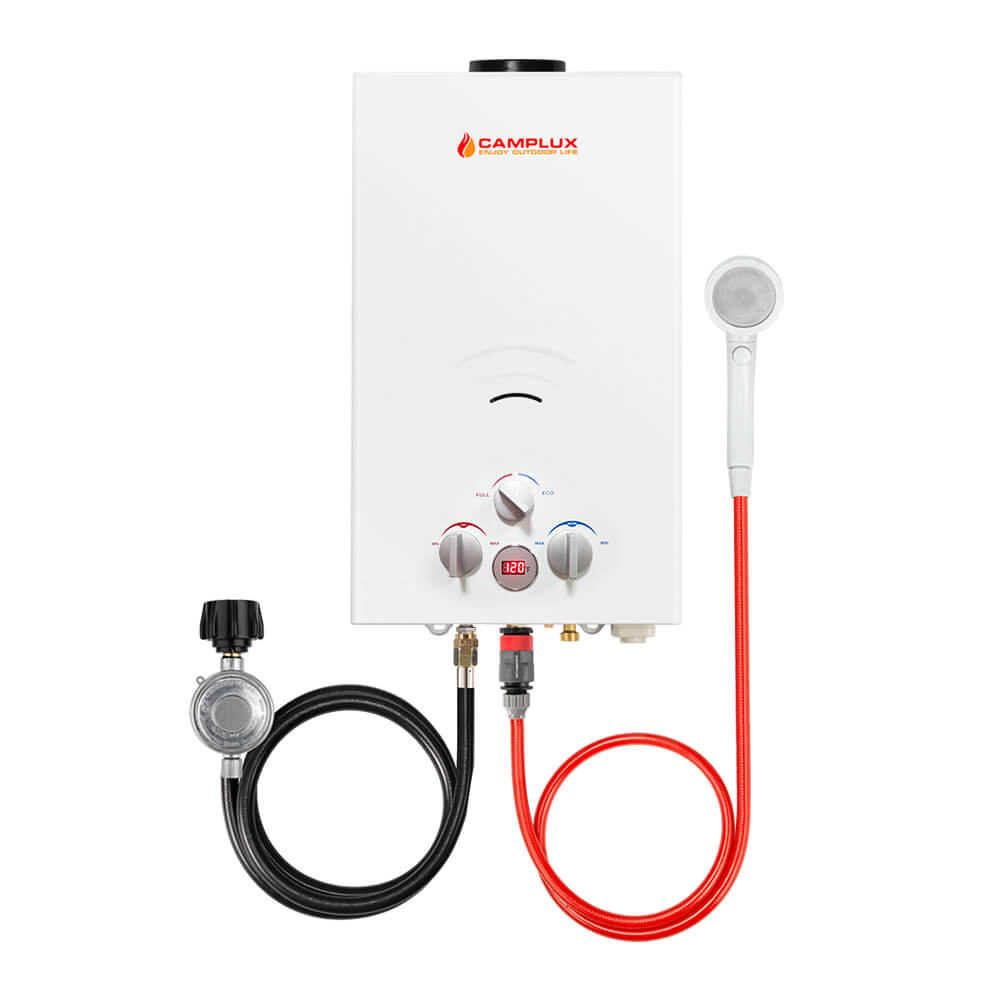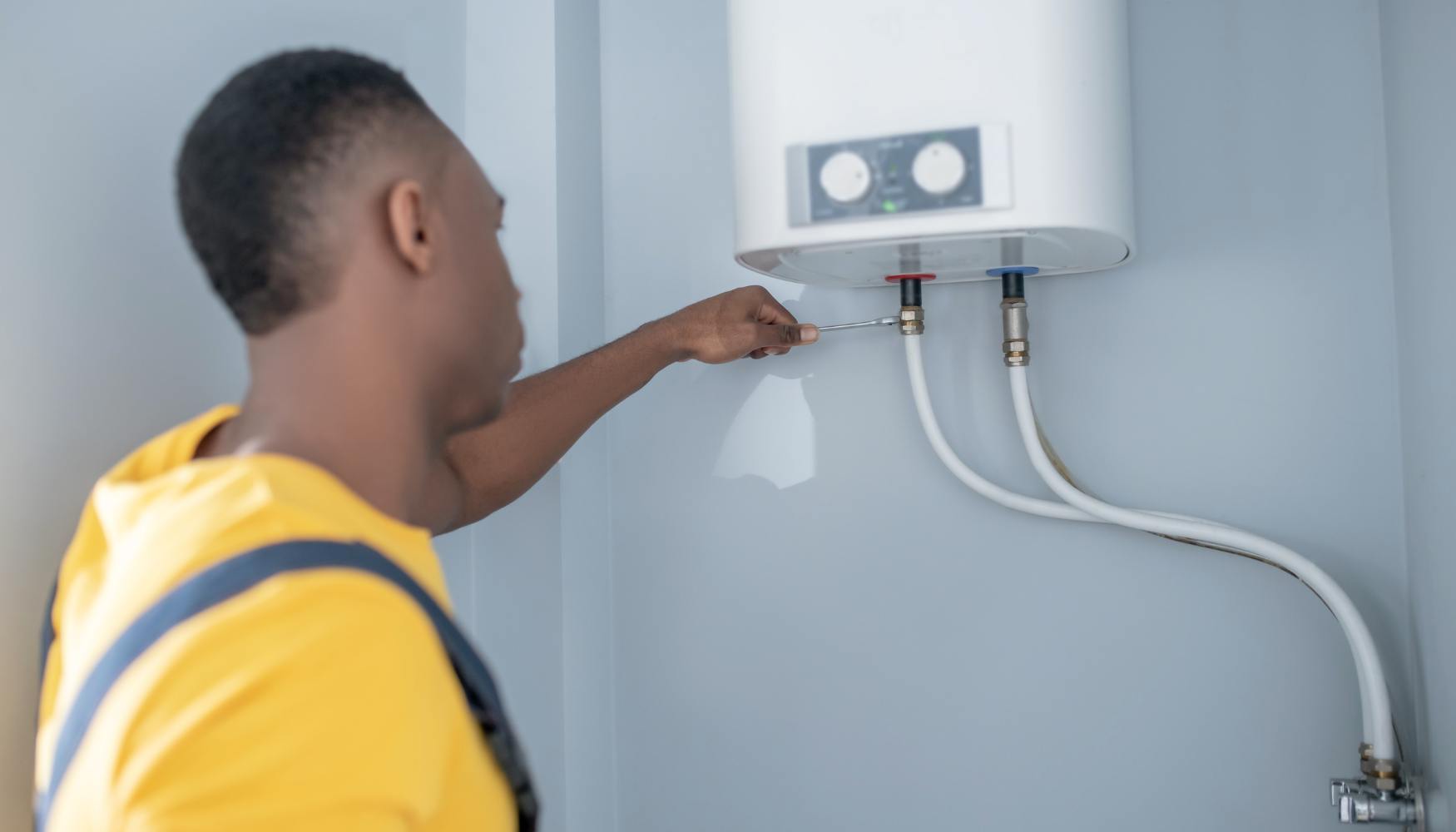From Energy Savings To Space Efficiency: The Benefits Of Tankless Water Heaters
From Energy Savings To Space Efficiency: The Benefits Of Tankless Water Heaters
Blog Article
Each person will have their unique assumption involving Why You Should Consider a Tankless Water Heater.

In a world where benefit and effectiveness preponderate, it's no surprise that house owners are frequently on the lookout for smarter means to manage their home's energy consumption and comfort. One development that has actually continuously acquired appeal is the tankless water heater. Yet exactly what makes these systems stand out from the conventional tank-based versions most of us grew up with? Let's dive in and check out the advantages of tankless water heaters, helping you determine if it's time to make the switch in your house.
Introduction
Picture this: you step into the shower after a long day, expecting a relaxing cascade of warm water, just to be greeted by icy droplets due to the fact that the last person used everything up. Noise acquainted? Conventional hot water heater keep a set amount of hot water, meaning you go to the grace of that tank's supply. Tankless systems, on the other hand, heat water as needed. Say goodbye to running out mid-shower, say goodbye to wrestling with schedules simply to make certain hot water is readily available.
Comprehending Tankless Hot Water Heater
What Are Tankless Hot Water Heater?
Tankless water heaters, sometimes referred to as on-demand or immediate water heaters, give warm water only as it's required. As opposed to storing gallons of pre-heated water, these devices kick into activity the moment you turn on the faucet. Water passes through a heat exchanger, warming up in real-time, indicating you get an uninterrupted circulation of hot water without the requirement for a huge tank resting idly by.
Just how Do They Vary from Conventional Solutions?
Conventional heating units hold a storage tank of warm water, using power to maintain that container at a regular temperature. Tankless systems get rid of the standing supply, lowering wasted energy and the bulky impact of a huge cylinder. Basically, you're updating from a "accumulation" mindset to a "made-to-order" strategy.
Usual Sorts Of Tankless Units
Tankless hot water heater generally can be found in 2 ranges: gas and electric. Gas versions tend to provide greater flow rates, perfect for larger households, while electrical versions typically offer smaller homes and are typically easier to install. Additionally, some systems are made for point-of-use (offering one fixture) while others can deal with the whole home's hot water requirements.
Key Advantages of Tankless Hot Water Heater
1. Endless Hot Water Supply
Ever before needed to arrange showers so everybody obtains their fair share of hot water? With tankless, that becomes a distant memory. As long as the heating system's flow capability isn't exceeded, you can take back-to-back showers without turning into a popsicle.
2. Power Effectiveness and Cost Cost Savings
Say goodbye to warming a giant storage tank's well worth of water and maintaining it warm throughout the day. Tankless heating systems decrease standby power losses, which can decrease utility expenses. While the first price could be greater, the lasting cost savings often justify the financial investment.
3. Space-Saving Style
If your home is short on storage space, removing the cumbersome tank maximizes valuable room. Tankless devices are small and can typically be installed on walls, hidden in corners, or installed in limited energy closets without having all to oneself the whole room.
4. Longer Life expectancy
A well-maintained tankless water heater can outlast its tank-based cousin. Traditional containers might last 10-15 years, while tankless models can keep downing along for twenty years or more, making them a strong investment gradually.
5. Improved Water Quality
Saving water in a container can often bring about sediment buildup or a slightly "off" taste. With tankless systems, fresh water is heated right away, decreasing the chances of debris buildup and potentially supplying cleaner-tasting water.
Considerations Prior To Changing
Though the benefits are engaging, it's smart to take into consideration a couple of elements prior to completely dedicating.
Initial Investment Costs
Tankless heating systems commonly feature a greater upfront cost. Between the device itself and prospective installment alterations, the preliminary expense could give you sticker shock. Yet keep in mind to view it as a long-term financial investment.
Installation Demands
Depending upon your home's framework, you may need extra electric ability or gas line upgrades. Ensure you recognize the setup requirements and consult with a professional to prevent shocks.
Examining Your Home's Water Use Patterns
If your house all at once uses multiple components with high hot water need, make sure the device's flow price meets your requirements. Understanding your use patterns helps you choose the appropriate size and type of tankless heating unit.
Upkeep and Care Tips
Tankless systems are reasonably reduced maintenance, yet they aren't set-it-and-forget-it appliances.
Routine Cleansing and Descaling
Hard water minerals can accumulate in the heat exchanger, influencing performance. Regular descaling (typically advised each year) maintains the device going for peak performance.
Yearly Specialist Evaluations
A yearly checkup from a professional ensures minor problems are captured early. They'll examine the system's performance, try to find leakages, and aid maintain ideal performance.
Guaranteeing Appropriate Air Flow
For gas versions, appropriate ventilation is essential to securely remove exhaust gases. Make sure venting systems are clean and appropriately installed to prevent any type of possible security risks.
Contrasting Different Brands and Models
Not all tankless water heaters are created equivalent.
Researching Reliable Manufacturers
Try to find respectable brand names with a background of creating quality systems. A trusted maker commonly supplies far better customer support and longer guarantees.
Reviewing Reviews and User Comments
Individual reviews and comments from neighbors or close friends who have actually gone tankless can offer valuable understandings. Often, real-life experiences can be extra telling than advertising sales brochures.
Installment: DIY or Specialist?
While some home owners delight in dealing with projects themselves, tankless setup might not be the most effective time to burst out the tool kit.
Advantages and disadvantages of DIY Installment
A DIY mount might save money, but it includes threats. Inaccurate setup can result in ineffectiveness or safety and security worries. If you come in handy and have experience, it might be feasible-- however proceed with care.
When to Call an Expert Plumbing Technician
For a lot of, calling a pro makes certain whatever's done properly. A professional plumber understands regional codes, sizing requirements, and venting criteria, lowering the risk of problems.
Taking full advantage of Effectiveness
You have actually invested in a tankless unit-- currently maximize its performance.
Optimal Temperature Settings
Most individuals set their devices in between 120-140 F. Readjusting the temperature can boost convenience and savings. Experiment to discover a sweet area that does not waste energy.
Pairing with Low-Flow Fixtures
Intend to extend your device's capabilities? Think about mounting low-flow showerheads and faucets. They lower water use, allowing your tankless system to supply a constant stream of hot water without stressing.
Environmental Impact
Tankless hot water heater straighten with greener living goals.
Minimized Carbon Impact
By using much less power and just home heating water as needed, tankless systems can decrease your home's carbon impact, reducing your environmental influence.
Preserving Natural Resources
Much less power intake and much less lost hot water equate into less natural deposits being made use of, an ecological win-win.
Who Benefits Many from Tankless Heating units?
The appeal of tankless heating units is that they can match a selection of houses.
Big Households vs. Single Occupants
Big families could enjoy the limitless hot water supply, while single occupants value the energy savings from not warming an entire tank for simply one person's early morning shower.
House Owners with Limited Room
If your home is short on square footage, shedding the cumbersome storage tank maximizes space for other basics-- or possibly just a lot more elbow room.
Eco-Conscious Consumers
Going tankless aligns with eco-friendly worths, guaranteeing you're not wasting energy or sources.
Future Fads in Tankless Hot Water Heater
The globe of home appliances is ever-evolving, and tankless water heaters are no exception.
Smart Home Integration
Visualize readjusting your hot water heater's temperature level through an app or receiving maintenance alerts on your phone. As clever home technology advances, we'll see even more connection and comfort.
Innovations in Technology
R&D is regularly improving warm exchangers, making units more reliable and durable. Future models could be also quieter, more portable, and much better suited for differing climates.
Final thought
Choosing a tankless water heater is greater than simply updating your home's hot water system; it's purchasing lasting convenience, energy effectiveness, and a greener way of living. By considering your household's water usage, being mindful of setup requirements, and committing to routine upkeep, you can take pleasure in a steady stream of warm water without the luggage of a cumbersome storage tank. As technology develops, you can anticipate also smarter, much more effective tankless solutions that not only make your life much easier yet also benefit the earth.
Pros and Cons of Tankless Water Heaters
Tankless Water Heater Pros
Saves Energy: Simply put, you re spending less energy to create hot water, so your total carbon footprint goes down, not to mention your bills. Lasts Longer Than Storage Tanks: Storage tank units need to be replaced every 15 years or so. But tankless units? They can last for 30 years before they give out on you. Constant Hot Water: Need to take a shower and don t want the water running cold? Awesome it won t. The water will stay hot the entire time because it creates hot water on demand. Saves You Money: Less water usage equals less money. Beyond that, you re not paying to keep water hot 24/7. Those savings add up quickly. Better for the Environment: Less water waste is better for everyone. It saves you money, but it s also environmentally conscious at the same time. Tankless Water Heater Cons
It Can Take a Minute: Depending on your specific unit and its placement, it can take anywhere from 10 seconds to 2 minutes to fully heat up. Because there s no storage tank, it heats water as you need it. Upfront Purchase Price: While we talked about their longevity, there s sticker shock when you look at brand-new tankless units to install. It pays for itself, but it s still a big chunk of change at first. Has its Limits: If you run multiple appliances at once, such as the dishwasher, washing machine, and maybe you take a shower at the same time, there might not be enough hot water. https://www.airsouthnow.com/blog/water-heater-service/pros-and-cons-of-tankless-water-heaters/

I hope you enjoyed our topic on Unveiling the Hot Trend: The Benefits of Tankless Water. Thanks a lot for taking the time to browse our article. Sharing is nice. Helping people is fun. We treasure your readership.
Call Today Report this page